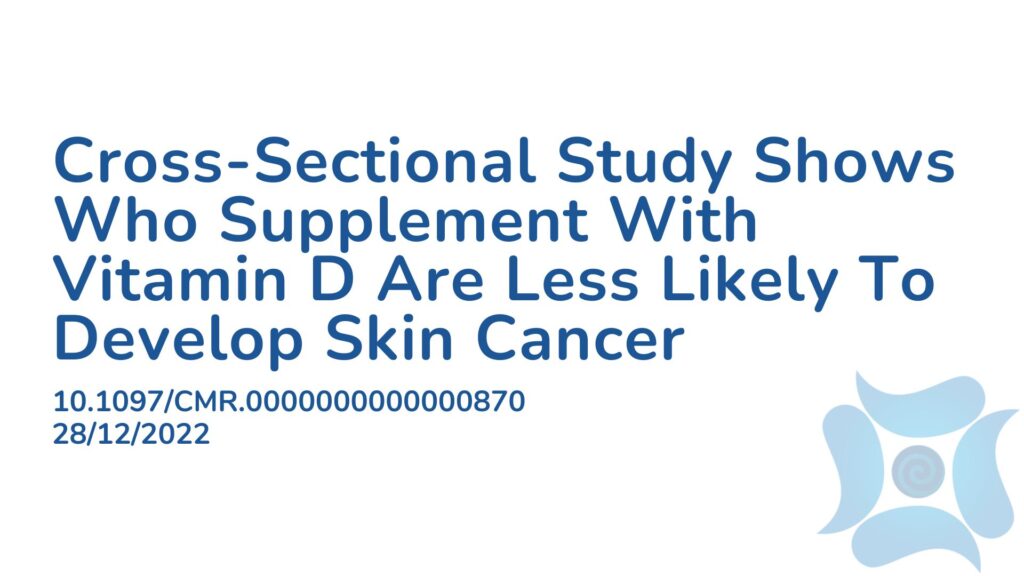Summary:
Vitamin D plays an extremely important role in the functioning of the human body and a deficiency is linked to increased likelihood of many common diseases. The link between vitamin D and skin cancers is evident in literature, however findings from these studies are often contradictory and inconclusive. This study, which included almost 500 people with a risk of developing skin cancer and melanoma found that people who take vitamin D supplementation have a considerably lower risk of skin cancer and melanoma compared with people who do not supplement. The authors were unable to determine a clear cause or provide definitive results that vitamin D supplementation can help reduce the risk of skin cancers, however they can confidently say that in their study groups, individuals who supplemented with vitamin D had less cancer and melanoma.
Abstract:
There are conflicting results on the role of vitamin D system in cutaneous carcinogenesis. Therefore, it was investigated whether the use of oral vitamin D supplements associates with photoaging, actinic keratoses, pigment cell nevi, and skin cancers. In this cross-sectional study, 498 adults (aged 21-79 years, 253 males, 245 females, 96 with immunosuppression) subjects at risk of any type of skin cancer were examined, and possible confounding factors were evaluated. The subjects were divided into three groups based on their self-reported use of oral vitamin D supplements: non-use, occasional use, or regular use. The serum level of 25-hydroxyvitamin-D3 was analyzed in 260 subjects. In 402 immunocompetent subjects, vitamin D use did not associate with photoaging, actinic keratoses, nevi, basal, and squamous cell carcinoma. In contrast, there were lower percentages of subjects with a history of past or present melanoma (32/177, 18.1% versus 32/99, 32.3%, P = 0.021) or any type of skin cancer (110/177, 62.1% versus 74/99, 74.7%, P = 0.027) among regular users compared to non-users. In the logistic regression analysis, the odds ratio for melanoma was 0.447 (P = 0.016, 95% confidence interval, 0.231-0.862) among regular users. Furthermore, the investigator-estimated risk class of skin cancers was significantly lower among regular users. Serum 25-hydroxyvitamin-D3 did not show marked associations with skin-related parameters. The results on 96 immunosuppressed subjects were somewhat similar, although the number of subjects was low. In conclusion, regular use of vitamin D associates with fewer melanoma cases, when compared to non-use, but the causality between them is obscure
Article Publication Date: 28/12/2022
DOI: 10.1097/CMR.0000000000000870



